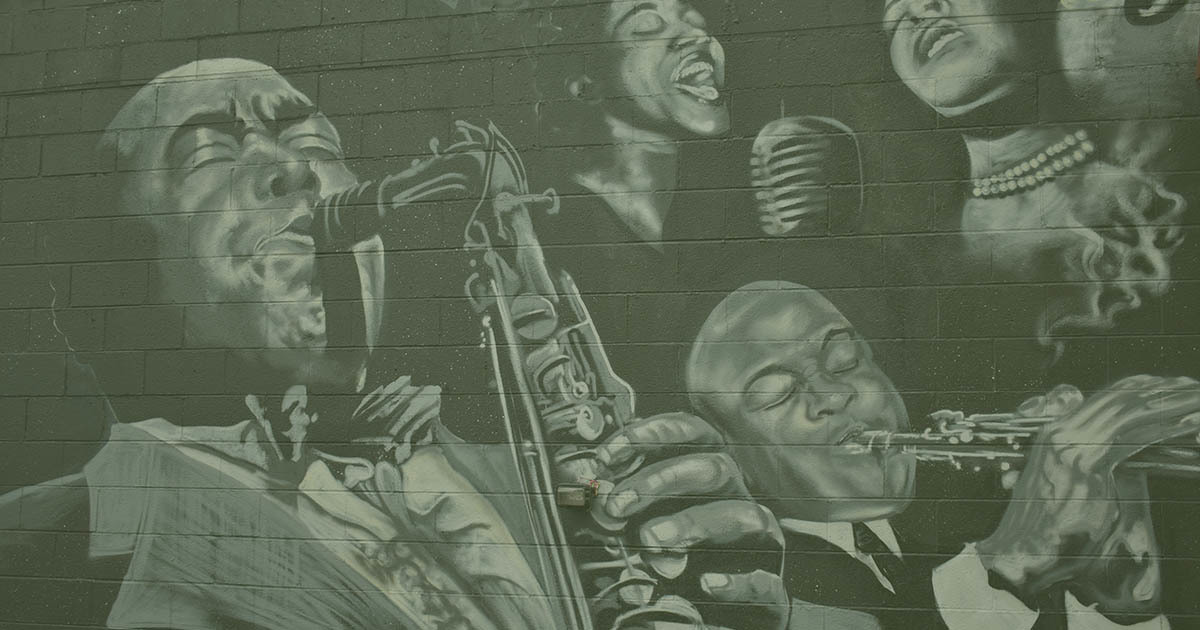The Importance of Developing a Strong Jazz Vocabulary
by Ron Kearns
Date Posted: February 20, 2020

Learning a New Language
If you want to develop as a jazz improviser you have to think about it as learning a new language.
When your learned to speak you learned words that were important to your very existence and then you learned words that improved your quality of life. As you matured you moved from simple statements to more sophisticated statements. You used words and statements that had a logical flow together. You didn’t jump from monosyllabic words to multi-syllabic words. Most of your speech development depended on you listening to others speak. You chose parents, friends, relatives and mentors as models for your speech. Before you learned to read or write you learned the language you spoke completely from listening.
Listen to Emulate
Once you got older you started listening to speakers who represented what you wanted to emulate. There was something about how they spoke that touched you. You decided that you wanted your speech to flow like theirs did. You would even imitate their speech and mannerisms. Wait, this is an article about jazz improvisation, why so much about speaking a language?
If you haven’t guessed, my point is that learning to improvise is learning to speak through your horn. Improvisation is telling a story with your instrument. In order to tell a story you must know how to speak. You must have a grasp of the language. You are composing your story spontaneously—in front of listeners expecting you to tell them something good! If people frown while you’re talking it means they’re not following what you’re saying. The same is true when you’re playing and the musicians around you are frowning, they’re not following what you’re saying.
"...learning to improvise is learning to speak through your horn." - Ron Kearns
So, how do you learn the jazz language besides listening?
Develop Facility on Your Horn
You start by developing facility on your instrument. You do digital exercises and arpeggios so that when you listen you can attempt to play what you’ve heard. If you’ve read my other articles you know that method books aren’t intended to teach you to improvise. They are designed to help you develop the skills you’ll need to improvise.
Active Listening
As you listen actively (with your horn in your hands) you want to be able to imitate what you’ve heard. Play along with the improviser and copy their style. Listen to their inflections and how they play notes and phrases. The idea is not to become their clone, it is to give you a starting point to learn how to tell your story. We don’t need another Trane or Bird but we are interested in hearing your story. Listen to as many people playing the same song and notice how different they are. As Dexter Gordon said, listen to vocalists sing the lyrics so that you learn proper phrasing and the importance of words to the telling of the song’s story.
If you have difficulty playing some of the phrases you hear, go back to your method books to improve your technique. The important thing is to unlock your mind by not allowing poor technique to inhibit you. Don’t be afraid of making mistakes, they can be used somewhere because they came from your inner ear. Record yourself so you can critique yourself. You may not go where you wanted to go but where you went may be hip. Just step away and evaluate what you did.
Self-Critical Listening
If you really want to grow, listening to yourself critically and listening to others are equally important. Put yourself in positions playing with others that will help you try new things. Your story is important to others so tell it. Listen, listen and listen more!